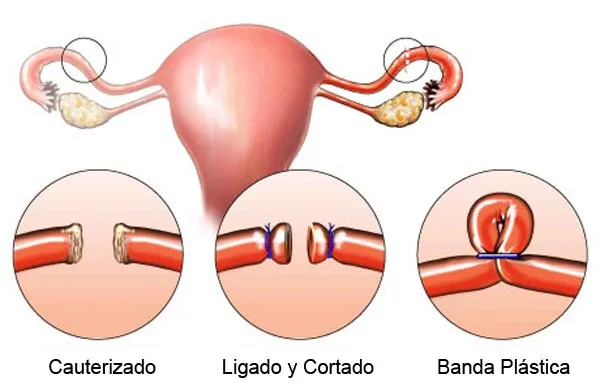Question:
In matters of conjugal morality, in family planning, is it valid and correct to apply the conflict of duty (the conflict situation) to validate the use of artificial birth control methods? This situation could arise in two cases:
a) Those involved, after trying to form their conscience as adequately as possible, do not succeed and subjectively consider that they have good reasons to consider that the doctrine set forth in Humanae Vitae is erroneous – that the Pontifical Magisterium is in error. However, since they made an effort to get out of their error and have not succeeded, the Episcopal Conferences, based on traditional doctrine, say that these persons can resort to the use of artificial methods because of the state of their conscience, which is invincibly erroneous, but certain.
b) Those involved are convinced of the truth of the doctrine expounded by Humanae Vitae. Here we must think of a double possibility:
(1) They live in a non-conflictive situation where they must comply with the encyclical as it is, using natural methods in family planning and not artificial ones.
However, it might be the case that (2) they may live in a conflictive situation in which they cannot fulfill all the values implied in the situation.
Suppose, for example, that a couple (a) is together only on the days when the woman is reproductive, (b) that they have good reasons for birth control, not based on selfishness of any kind, and (c) that they do not think it appropriate to interrupt their sexual life. This couple is in a conflicting situation because if they (a) use natural methods and (c) exercise sexuality, they will (b) not have birth control. If they did not want this solution and (c) tried to exercise sexuality while (b) controlling the birth rate, they would have no choice but to use artificial methods. If they do not like this solution either and want (a) to use natural methods and (b) birth control, then they would have no choice but (c) to abstain from sexuality. In other words, whatever decision is made, they always leave one value unrealized. Hence, it is called a conflictive situation.
The Episcopal Conferences contribute that, if the total good cannot be achieved, the greatest possible good must be done. What is the greatest possible good? This is to be determined by the couple in question. But it may be the second solution. A priest used the phrase ‘greatest possible good’ and mentioned that it is not the same as saying, ‘the lesser evil as the greatest possible good.’ Is this statement correct?
Answer:
The priest in question states that spouses may licitly have recourse to contraceptive means in two cases: a) when subjectively they have good reasons to consider that the doctrine expounded in Humanae Vitae is wrong, and b) when they are faced with a conflict of duties: the obligation to control births and the impossibility of doing so according to natural methods.
Neither of the two cases is morally correct, in my opinion.
1st – Regarding the first situation, except in the case of an invincibly erroneous conscience (and therefore poor Christian formation), no faithful Catholic can say that their conscience about a given subject is mature and, therefore, allowed to follow it licitly; not as long as he hasn’t done his best to know the teaching of the Church and to conform to that teaching. Pope John Paul II said that, “among the means that the redeeming love of Christ has provided to avoid this danger of error (of conscience) is the Magisterium of the Church…Therefore, it cannot be said that the faithful have made a diligent search for the truth if they do not take into account what the Magisterium teaches” [1].
2nd – The second situation, which suggests a ‘conflict of duties,’ cannot be applied to the presented conjugal case either. An actual conflict of duties (that is, the alternative between two situations to which a person is equally ‘obliged’) can only arise when the two opposing obligations are good in themselves; in such a case, the evil would come from ‘failing to fulfill one’ and, as a result, come from an ‘omission.’ A classic example is of a person who is required by the precept to attend Sunday Mass and of the precept of charity that commands them to care for a sick person or to stay with someone who threatens to do something crazy. When one of the two cases (or both) is a sinful action, there is no ‘conflict of duties.’ In effect, no one is ‘obligated’ to perform a sin. If one of the alternatives is a sin, we are obliged to do the other; and if both are sins, we are obliged to do neither: rather, to do nothing but commit a sin.
In the case presented, it is evident that there are family situations where it is necessary to control the birth rate. However, if the only alternative to doing so were an anti-conjugal or contraceptive action, then the obligation to control the birth rate would cease.
The principle of the ‘greatest possible good’ is an attractive way of presenting the principle of the ‘lesser evil:’ it is the same to say that we want 70 percent of a cake as it is to say that we give up 30 percent of it. Now, regarding this principle, it must be said:
a) It is a principle restricted to a particular field of human action: that which deals with indifferent acts and purely physical evils (for example, the worker who gets their hand caught in a fall and must choose between cutting off their hand or losing their hand and their life).
b) It never applies when one of the alternatives is an intrinsically evil act, that is, a formal sin. It does not apply, then, to the case in which a choice must be made between two sins (taking contraceptives or having an abortion) since neither of the two can be chosen; or between a sin and a purely physical evil (using condoms or tolerating the husband’s abandonment of his wife). Because, in the face of moral evil, there is a prior and superior principle: ‘one must do good and avoid evil,’ and there are no exceptions to first principles. Moral evil can never be chosen, even if it is the lesser of two moral evils: that which is immoral because of its object does not become good because of the possibility of worse evils, and as long as it remains evil, it can never be the object of choice of a good and licit act (cf. Humanae vitae, 14).
Fr. Miguel A. Fuentes, IVE
Bibliography
[1] John Paul II, Address to the Second Congress of Moral Theology, November 12, 1988, n. 4. Translation by Catholic Q&A.
Original post: Here
Other Post: What is sinful in cohabitation: living together or having sexual relations?














